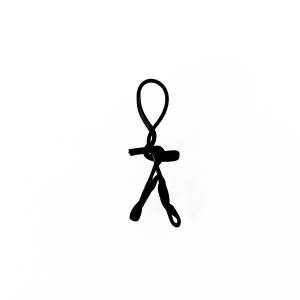a shock to the system
Anniemay is reading her Kindle in a chair next to my bed. As I watch I wonder just how many times she’s done this. I lose count.
On Sunday afternoon my heart threw a wobbly and got stuck on a rate of around 130 bpm. Not a big deal in itself — it often does this and I have drugs to deal with it. But when I go to bed Sunday night it’s still banging away like a morse-code operator on speed. I go to sleep on the assumption that it’ll be all right in the morning (just as I did last Thursday night). But no luck.
Monday is an effort. I’m out of breath and struggling up and down stairs. I’m concerned but not worried. And puzzled why the drugs don’t seem to be working. At 5.00 this morning it’s still galloping away. It’s been about 36 hours.
It’s perfectly normal to have a fast heart rate when we exert ourselves. It’s not fine when we’re doing absolutely nothing. Especially for any length of time. At best it’s tiring — and at worst, the heart can end up beating faster than it can actually pump, leading to the formation of clots in the heart chamber.
I call NHS111, describe what’s happening and they put me on to an out-of-hours doctor; “why have you left it so long?” I explain that this often happens but the drugs usually bring it back to normal. He sends me to A&E straightaway.
It's empty when we arrive and I’m in a resuscitation bed within minutes. I’m dosed up with even more drugs and we settled down to wait. Anniemay reads, while I stare zombie-like at the ceiling. As he hooks me up to an ECG machine, a nurse says; “you look a bit like Jeremy Corbyn”. If he looks anything like I do now, he has no chance.
After an hour, my heart is still firmly stuck on 130 bpm. I can’t go home until it’s below 100. There’s a con-flab among the staff and they decide to give it another hour before trying Plan B. Whatever that is. By 10.00am it’s only dropped to 129. I’m going to be here until the end of the week at this rate.
The A&E resuscitation ward is starting to fill up; interestingly, the morning crowd seem to be elderly people — strokes and falls.
“If we knew what your INR is, we might be able to try the quick method”. Plan B turns out to be cardio-version — an electric shock to the heart.
As it happens I do know my INR (the rate at which my blood clots) because I measure it myself every few weeks for my warfarin dosage. Being a bit of a nerd I have a record in a note-book going back a couple of years. Being a bit of an idiot, I don’t bring it with me (although I did think about it at the time). Anniemay offers to rush home and collect it. It takes her almost an hour and in that time my hear-rate does not change.
They read my note-book; there are hugs, shouts of “Yay” and high-fives all round. Well, — there would be if this were an episode of Holby City. Instead they smile and say things like “begin resusc protocol.” And it all happens at an amazing rate.
A large sticky thing is placed on my chest and another one placed on my back. Wires are attached An anaesthetist puts a mask over my face and then ushers Anniemay into the corridor “it’s not dangerous - but I don’t think you want to see this.”
My glasses are removed and I look up at the whiteness of the vague, out of focus ceiling. I keep waiting for the count-down from 10 and the dimming of the light. But nothing happens. I just stare at the whiteness ahead.
A nurse comes into view. I slur; “when are you going to start?”
“It’s all done - we’ve finished. Perfect. It dropped straight down to 79. We’ll keep you under observation for 2 hours then you can go home. Cup of tea?”
When I'm fully awake I grab AM's camera and point it upwards.
And thank you NHS.

Comments
Sign in or get an account to comment.


